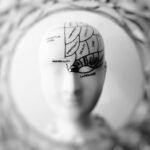Depression is a mental health condition causing persistent sadness, loss of interest, energy changes, and difficulty in daily functioning. It involves a range of symptoms like low mood, fatigue, changes in appetite, and thoughts of worthlessness, impacting emotions, behaviour, and overall well-being, often requiring professional treatment and support.
Table of Contents
Neurological Disorders
- How Cerebral Hypoxia can lead to brain damage?
- Bipolar Disorder
- Mononeuropathy
- Poliomyelitis
- Neurodegenerative disorders
- Huntington’s disease (HD)
- Cerebral edema
- Migraine
- Brain Hemorrhage
- Epilepsy
- Polyneuropathy
- Encephalitis
- Increased Intracranial Pressure
- Types of Brain Tumors You Should Know About
- Brain Stroke: Symptoms, Diagnosis and Treatment
Depression symptoms
Depression symptoms can vary in type and severity, but they commonly include:
- Persistent Sadness: Feeling down, hopeless, or experiencing a general sense of emptiness.
- Loss of Interest: Diminished interest or pleasure in activities once enjoyed.
- Changes in Appetite or Weight: Significant weight loss or gain due to changes in appetite.
- Sleep Disturbances: Insomnia or sleeping too much.
- Fatigue or Loss of Energy: Feeling constantly tired or lacking energy.
- Restlessness or Sluggishness: Difficulty sitting still or significantly decreased physical movement.
- Feelings of Worthlessness or Guilt: Experiencing excessive or inappropriate guilt or feelings of worthlessness.
- Difficulty Concentrating: Problems focusing, making decisions, or remembering things.
- Irritability or Agitation: Having a short temper or being easily agitated.
- Physical Pains: Unexplained aches, headaches, or digestive issues that don’t respond to treatment.
- Recurrent Thoughts of Death or Suicide
It’s essential to note that experiencing a few of these symptoms doesn’t necessarily indicate clinical depression. Diagnosis and treatment should be sought from a qualified healthcare professional for a comprehensive evaluation and appropriate guidance.
Depression treatment
Depression is typically treated through a combination of approaches tailored to an individual’s specific needs. Common treatments include:
- Psychotherapy (Talk Therapy): Cognitive-behavioral therapy (CBT), interpersonal therapy, or other forms of therapy help individuals understand their condition, cope with stress, identify negative thought patterns, and develop coping strategies.
- Medications: Antidepressants, such as selective serotonin reuptake inhibitors (SSRIs) or serotonin and norepinephrine reuptake inhibitors (SNRIs), can help regulate brain chemistry to alleviate symptoms. These are often prescribed in severe or persistent cases.
- Lifestyle Changes: Regular exercise, maintaining a healthy diet, and ensuring adequate sleep can significantly impact mood and overall well-being.
- Support Groups: Participating in support groups or community activities can provide a sense of belonging and support, reducing feelings of isolation.
- Mindfulness and Relaxation Techniques: Practicing mindfulness, meditation, yoga, or relaxation techniques can aid in stress reduction and managing symptoms.
- Light Therapy: Exposure to artificial light may help in patients with seasonal affective disorder (SAD), a type of depression that occurs at a particular time of year.
- Electroconvulsive Therapy (ECT): ECT may be considered in severe cases where other treatments are ineffective. It involves short-term electrical brain stimulation while the patient is under anaesthesia.
The treatment approach may differ for each individual, and it’s crucial to consult a mental health professional to create a personalized treatment plan. Combination therapies or adjustments to treatment plans might be necessary to find the most effective approach for managing depression.
Overcoming depression
If you’re battling depression, it’s important to know that you’re not alone. Here are a few suggestions that might assist you in managing depression:
- Seek Professional Help: Consult a mental health professional, such as a therapist or psychiatrist, who can provide guidance and support and potentially recommend therapy or medication.
- Build a Support System: Surround yourself with supportive and understanding people, whether they are friends, family, support groups, or even online communities.
- Self-Care: Prioritize self-care activities that bring you comfort and peace. It can include exercise, a balanced diet, ample sleep, and engaging in enjoyable activities.
- Mindfulness and Relaxation: Practice mindfulness, meditation, or relaxation techniques to alleviate stress and manage overwhelming emotions.
- Set Realistic Goals: Break down tasks into smaller, manageable goals. Achieving small milestones can boost your self-esteem and motivation.
- Stay Active: Engage in physical activities or hobbies that you enjoy. Exercise can release endorphins, which may help improve mood.
- Limit Stress: Identify and try to minimize sources of stress in your life. Learning to manage stress can help in managing depressive symptoms.
- Be Patient: Recovery from depression takes time. It’s crucial to be patient and kind to yourself throughout the process.
Remember, it’s okay to seek help, and it’s a sign of strength to confront these challenges. If you’re having thoughts of self-harm or suicide, please seek immediate assistance from a mental health professional, a trusted person, or a helpline. You deserve care and support.
Helplines for counselling
Arpita Suicide Prevention Helpline
- Helpline: 080-23655557
- Languages: English, हिंदी, اردو, ಕನ್ನಡ, தமிழ், తెలుగు, മലയാളം, कोंकणी, অহমিয়া, ગુજરતી, বাংলা
- Email: arpita.helpline@gmail.com
Vandrevala Foundation
- Helpline: 9999 666 555
- Languages: English, हिंदी, ગુજરતી, বাংলা, ಕನ್ನಡ, தமிழ், తెలుగు, മലയാളം, ଓଡ଼ିଆ, मराठी, ತುಳು
- Email: help@vandrevalafoundation.com
- Website: https://www.vandrevalafoundation.com/
Parivarthan
- Helpline: +91-7676602602
- Languages: All Indian languages except తెలుగు, മലയാളം
- Website: https://parivarthan.org/
iCALL
- Helpline: 022-25521111, +91-9152987821
- Languages: मराठी, বাংলা, తెలుగు, हिंदी, English
- Email: icall@tiss.edu
Sangath
- Helpline: 011-41198666
- Time: 10 AM -6 PM
- Languages: English, हिंदी, मराठी, कोंकणी
- Email: contactus@sangath.in
- Website: https://sangath.in/
Voice That Cares (ROCF)
- Helpline: 8448-8448-45
- Languages: English, हिंदी
- Email: info@rocf.org
- Website: https://www.rocf.org/voice-that-cares/
COOJ Mental Health Foundation (COOJ)
- Helpline: +91-8322252525
- Languages: English
- Email: YouMatterByCooj@gmail.com
Connecting Trust
- Helpline: +91-9922001122, +91-9922004305
- Languages: English, हिंदी, मराठी
- Email: distressmailsconnecting@gmail.com
- Website: https://connectingngo.org
Roshni Trust
- Helpline: 040-66202000, 040-66202001
- Languages: తెలుగు, اردو, हिंदी, English
- Email: roshnihelp@gmail.com
Lifeline
- Languages: বাংলা, हिंदी, English
- Helpline: +91-9163940404, +91-9088030303
- Email: lifelinekolkata@gmail.com
Sumaitri
- Helpline: 011-23389090, +91-9315767849
- Languages: हिंदी, English
- Email: feelingsuicidal@sumaitri.net
Samaritans Mumbai
- Helpline: +91-8422984528, +91-8422984529, +91-8422984530
- Languages: मराठी, हिंदी, English
- Email: talk2samaritans@gmail.com
Mann Talks
- Helpline: +91-8686139139
- Languages: हिंदी, English
- Website: http://www.manntalks.org
Muktaa Helpline
- Helpline: 788-788-9882 , 080-69267931
- Languages: English, हिंदी, मराठी
- Email: contactus@mcf.org.in
- Website: https://mentalhelpline.mcf.org.in/
















